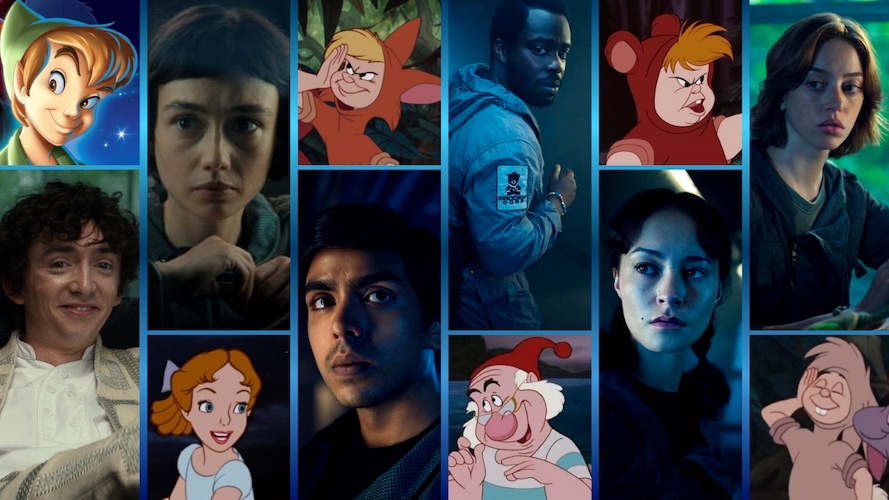Never Grow Up: The Peter Pan Parallels Powering "Alien: Earth"
In FX’s upcoming series Alien: Earth, series creator Noah Hawley reimagines the franchise’s core fears - corporate control, synthetic life, and existential dread - through an unexpected lens: that of a child. During a recent press conference, Hawley explained that this narrative choice stemmed from a desire to reframe familiar themes. “The best way to explore [the question of whether humanity deserves to survive] is to look at the adult human world through the eyes of a child," he said. “Children [are] bad liars. They don't know how to pretend they're not scared. … They don't take for granted some of the things that adults take for granted."
This idea became the foundation for Wendy, a synthetic-human hybrid whose point of view drives the emotional heart of the series. Hawley noted that “once I started with this idea of bringing children into this story - the human minds transferred into synthetic bodies - then the Peter Pan analogy came pretty quickly after that." In the series, “Wendy" is one of several children with terminal diseases whose consciousness is secretly transferred to the body of a hybrid by the Prodigy corporation, all of whom are nicknamed “Lost Boys." Prodigy’s island headquarters is dubbed “Neverland," and as each child undergoes their transfer, they are shown scenes from Walt Disney’s 1953 animated film, and later read J.M. Barrie’s original text as a bedtime story by Prodigy’s wunderkind mastermind. “It became clear that the CEO who invented this hybrid technology should be the Peter Pan character himself in Boy Kavalier," Hawley shared.
Bringing Wendy to life on screen fell to Sydney Chandler, who described the role as both abstract and collaborative. “Wendy is very much a blank page," she said. “You can't research a hybrid. … I would have this image of two magnets pressing up against each other, and you just can't get them to touch - the mind, which is known, and this body, which is unknown territory. It's kind of like, what's in the middle? What's that void? [That’s] what she's seeking."
Samuel Blenkin leaned into the eccentricities of his character, Boy Kavalier - most notably the decision to go barefoot for the entire shoot. “I fought really hard for the bare feet," Blenkin admitted. “I realized I hadn’t worn a pair of shoes for the whole shoot… It gave me a real sense of freedom, [which] I think is inherent to the character." The idea came out of early design discussions with Hawley and costume designer Suttirat “Anne" Larlarb, where pajamas and childlike motifs helped underscore the Peter Pan metaphor.
Timothy Olyphant, who plays the synthetic character Kirsh, brought a very different tone to his portrayal. Known for brooding characters in previous roles, he revealed that his approach here was surprisingly light. “Was it dark? It's funny, I never thought of it that way," he said. “I was really going for comedy." He added that the biggest draw for him was Hawley himself: “He called me in, and I was in. It’s pretty simple."
Filmed in Thailand, the extreme climate left a visceral imprint on both the production and performances. “Although we were far away from home, we were really welcomed," said Alex Lawther, who plays Hermit. “There’s a lot of sweat in this show… a good 50% of that has to do with the 90% humidity of Thailand's climate." For Babou Ceesay, who plays the cyborg Morrow, the experience of being far from home created something rare and valuable: “We did develop incredible bonds because you're far away from home. You're all together in one place. It's not often that you enjoy yourself so much on set and working, but that you also have such a phenomenal group of people outside of it."
As for Alien: Earth's place within the broader Alien universe, executive producer David W. Zucker emphasized that grounding the story on Earth opened up new possibilities without betraying the franchise’s DNA. “By literally bringing this story to Earth," he said, “it suddenly opened up the landscape, literally, and gave [Noah] an opportunity to really delve deeply into things one can't accomplish in a two-hour film."
From childlike wonder to corporate dystopia, Alien: Earth seeks to deliver both spectacle and substance. If the team’s insights are any indication, it’s not just another entry in the franchise; it’s a bold reimagining with something new to say.
Alien: Earth premieres Tuesday, August 12th, at 8/7c on FX and simultaneously streaming on Hulu. The double-episode premiere will be followed by weekly episode releases on the same night and time.



